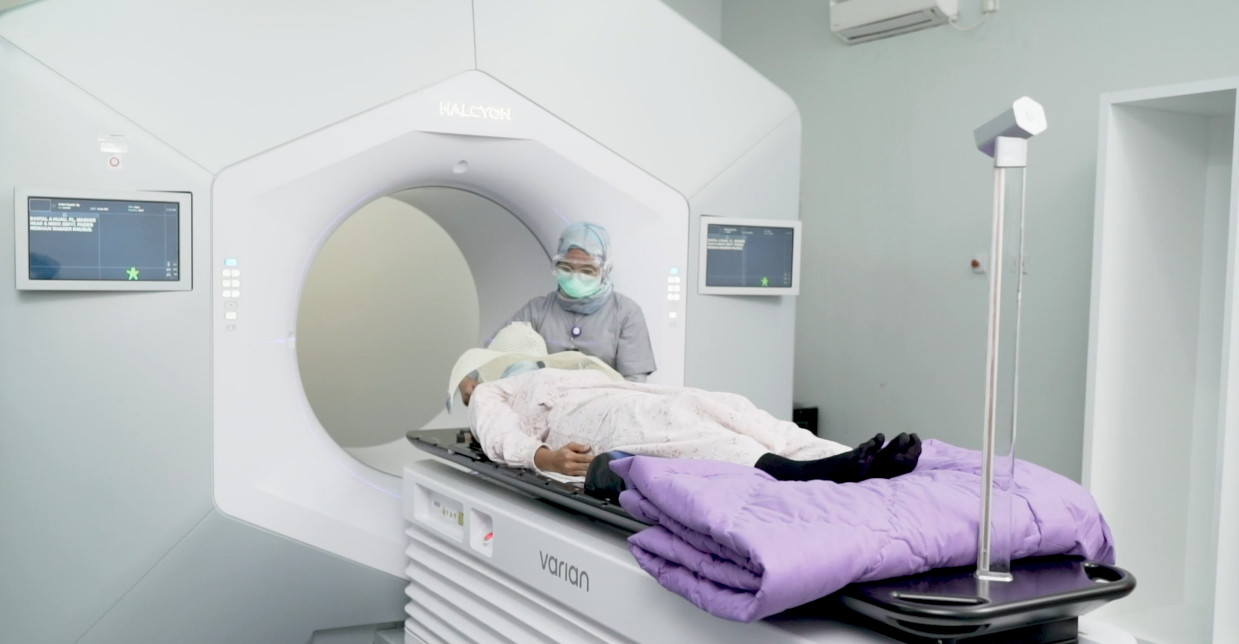Indonesia vows to improve facilities to curb medical tourism
According to President Joko "Jokowi" Widodo, some 2 million Indonesians leave the country every year seeking medical treatment, costing the country Rp 165 trillion (US$10.6 billion) annually in capital outflows.
Change text size
Gift Premium Articles
to Anyone

T
he government is seeking to improve the country’s healthcare infrastructure and increase the number of medical specialists in the country as high costs and poor-quality care drive millions of Indonesians to seek medical services abroad.
Health Ministry spokesperson Siti Nadia Tarmizi said that the government was currently trying to improve medical infrastructure and increase the number of healthcare professionals to ensure better-quality care for all people and reduce outbound medical tourism.
"We are trying to ensure that [government-owned] hospitals in all regencies and provinces can provide treatments for common chronic and deadly illnesses such as cancer, cardiovascular and kidney diseases so that patients will not need to wait for a long time or travel a long distance to receive care," Nadia said on Wednesday.
Nadia added that the ministry had launched various programs to prevent illnesses, promote a healthy lifestyle and improve early detection.
The ministry, for example, is in the process of distributing 10,000 ultrasound machines to community health centers (Puskesmas) across the country, which aside from examining pregnancies could be used for breast and cervical cancer detection.
It is also in the process of procuring hundreds of computerized tomography (CT) scanners and some 10,000 hematology analyzers to run blood tests and detect various diseases.
Lack of specialists
According to President Joko "Jokowi" Widodo, some 2 million Indonesians leave the country every year seeking medical treatment, costing the country Rp 165 trillion (US$10.6 billion) annually in capital outflows.
"[Of the 2 million outbound medical tourists], 1 million go to Malaysia, 750,000 people go to Singapore and the rest go to Japan, the US and Germany. We cannot go on like this, we're losing Rp 165 trillion every year," he said earlier this week.
The President highlighted the two underlying reasons for the outbound flow as lack of medical specialists and inadequate physical infrastructure for healthcare delivery.
Based on data from the Indonesian Medical Council (KKI), there are only some 55,000 medical specialists in the country, meaning that every specialist must cater to 5,000 people. The problem is exacerbated by the fact that most medical specialists practice in big cities, especially in the most populated island of Java.
Out of the 897 hospitals owned by the government, 104 of them do not have practicing anesthesiologists, surgeons, gynecologists, obstetricians or pediatricians, which are among the most in-demand medical specialties.
Health Minister Budi Gunadi Sadikin said that only 20 percent of all government hospitals could perform annuloplasty to repair heart valves due to a lack of medical equipment and specialists.
Budi said some 6,000 babies with congenital heart disease died each year in Indonesia due to a lack of cardiothoracic surgeons and insufficient medical infrastructure.
The Health Ministry is currently trying to increase the number of medical specialists across the country by providing scholarships for 5,000 doctors who want to pursue medical specialisms.
Lawmakers are also currently formulating an omnibus bill on health care, which will allow hospitals to provide medical specialty teaching programs and will simplify licensing procedures for specialists.
More than infrastructure
Questions remain whether the government's various efforts will be enough to discourage patients from seeking treatment abroad.
According to many patients, the problem with the growing outbound medical tourism goes beyond the lack of medical specialists and poor infrastructure in the country.
Putri, a 44-year-old freelancer from West Java said her father chose to undergo annuloplasty in a hospital in Penang, Malaysia, several years ago because it was 50 percent cheaper than in local hospitals.
"It typically costs Rp 350 million to perform an annuloplasty in local hospitals, but it cost only Rp 150 million in Penang. The procedure only took five hours and my father could return to Indonesia on the same day, I was really impressed," she said.
Following her father's successful surgery, Putri said she and her mother decided to return to the hospital to remove lymphomas from their own bodies.
Putri said she previously had a surgery in Indonesia to treat her lymphoma, but the surgeons failed to completely remove it and it grew back.
"Although the lymphoma surgery in Penang was four times more expensive than my first surgery, I don't regret it one bit. My and my mother's lymphomas didn't return and the service and hospitality the hospital offered during our treatments were top notch," she said.
Another medical tourist, 33-year-old Molly from Aceh, said she chose to visit a hospital in Penang when she experienced severe period pain in 2018 because it was cheaper and offered better-quality care.
"I had visited a local hospital at that time and the doctor advised me to undergo surgery to remove the cysts in my ovary to ease my period pain. So I decided to go to Penang to seek a second opinion," she told The Jakarta Post Tuesday.
"However, the doctor at the Penang hospital said that I did not have cysts and I did not need surgery. I just had to manage my stress better and practice a healthy lifestyle. He gave me medicine and I got better, no surgery needed," she added.
Molly said the surgery would have cost her Rp 8 million but she only spent around Rp. 2.5 million for her medical treatment in Penang, including travel expenses.
Aside from high medical costs, Molly believes that Indonesian healthcare facilities still have poor administrative management, highlighting the recent news of the deaths of a pregnant woman and her unborn baby in West Java after she was refused care in a government-owned hospital because of administrative reasons.









